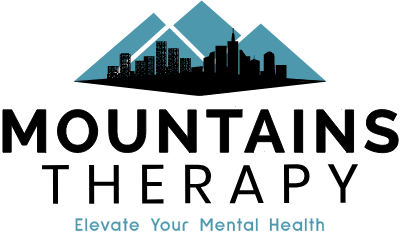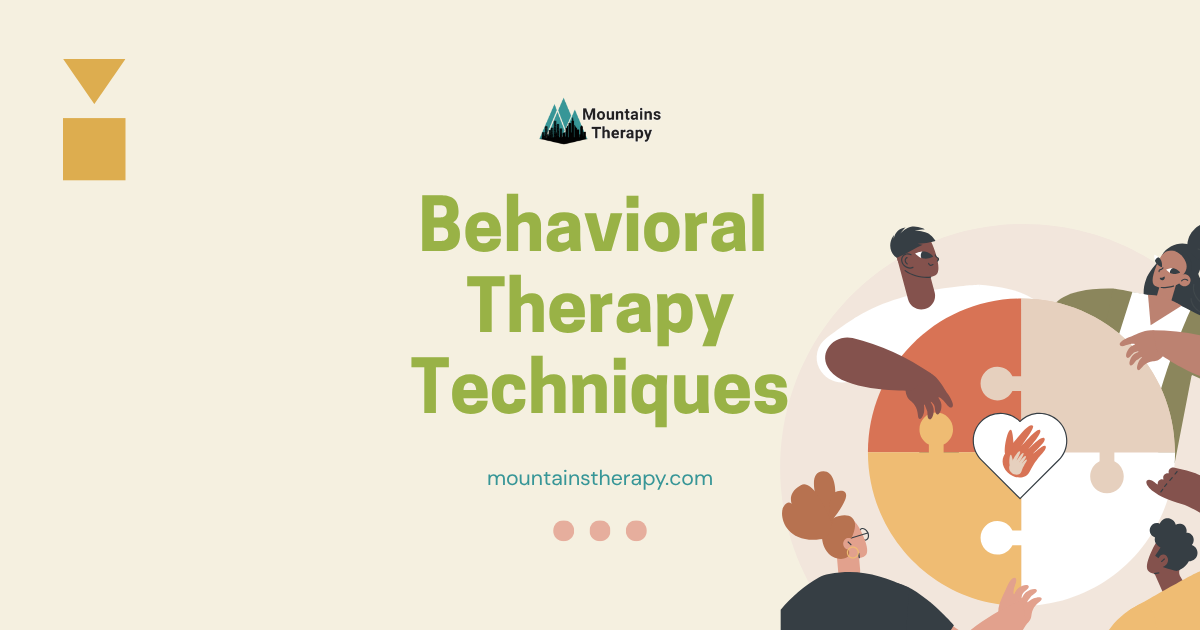Behavioral Therapy Techniques: Tools for Change and Mental Wellness
Learn more about Individual Behavioral Therapy.
In This Blog, You’ll Learn:
✅ What behavioral therapy is and how it affects daily life
✅ Types, signs, and symptoms that
behavioral therapy can help with
✅ Myths vs. facts about behavioral therapy
✅
Real-life
behavioral therapy techniques with practical examples
✅
How therapy supports lasting
behavioral change and healing
✅ The different types of therapy used to support behavior change
✅ Answers to frequently asked questions about behavioral therapy
✅ Where to find the best behavioral psychotherapy near me
What Is Behavioral Therapy and Why Does It Matter?
Behavioral therapy is a practical, evidence-based approach that focuses on identifying and changing unhelpful behaviors that impact daily life. Whether it’s avoiding tasks due to anxiety, acting out in relationships, or struggling with habits like procrastination, behavioral therapy helps clients replace these patterns with healthier ones. This approach empowers individuals to regain control, improve emotional well-being, and experience more satisfying relationships and routines.
It’s also used effectively in treating specific conditions such as OCD cognitive behavioral therapy, cognitive behavioral therapy for insomnia, and managing emotional reactions tied to behavioral manipulation or impulse control.
Types, Signs, or Symptoms That Behavioral Therapy Can Help With
Behavioral therapy can address a wide range of concerns. Here are common signs or patterns where behavioral techniques can make a difference:
- Avoidant behaviors
Skipping important tasks, avoiding conversations, or staying in bed to escape overwhelming emotions or responsibilities. - Reactivity
Lashing out during arguments, slamming doors, yelling, or shutting down emotionally when faced with stress or confrontation. - Unhelpful habits
Engaging in compulsive behaviors, chronic procrastination, nail-biting, overuse of screens, or repetitive negative self-talk like “I can’t do anything right.” - Disrupted routines
Difficulty maintaining regular meals, sleep hygiene, personal hygiene, or daily productivity—often linked to depression or anxiety. - Obsessive thought loops
Constantly checking things, repeating phrases in your head, or feeling trapped in mental rituals—especially treated with cognitive behavioral treatment for OCD. - Sleep issues or insomnia
Trouble falling asleep or staying asleep due to racing thoughts or anxiety, supported through behavioral cognitive therapy for insomnia. - Emotional avoidance
Distracting yourself constantly to avoid feeling sadness, grief, or fear. Can include overworking, overeating, or overusing substances. - People-pleasing behaviors
Saying yes to everything, fear of disappointing others, or hiding your true opinions to avoid conflict or rejection. - Impulsive behaviors
Making snap decisions you later regret, like overspending, risky texting, or quitting things abruptly—often rooted in poor emotional regulation. - Behavioral manipulation
Using guilt-tripping, stonewalling, or passive-aggressive actions to get needs met—often unintentional but learned behavior patterns that therapy can address. - Low frustration tolerance
Getting easily irritated when plans change or when things don’t go perfectly; snapping at others or shutting down instead of problem-solving.
Myths and Facts About Behavioral Therapy
Myth:
Behavioral therapy is only for children or people with extreme behavior issues.
✅ Fact: Behavioral therapy helps people of all ages manage everyday stressors, emotional regulation, and habits.
Myth: It’s just about “fixing” bad behavior.
✅ Fact: Behavioral therapy supports understanding the why behind behaviors and teaches compassionate, sustainable change.
Myth: It only works for people with diagnosed disorders.
✅ Fact: Anyone can benefit from behavioral techniques, including those with sleep concerns, chronic worry, or specific diagnoses like OCD, treated with cognitive behavioural therapy ocd protocols.
Behavioral Techniques - How to Cope With Unhelpful Behaviors
Behavioral therapy techniques for real-life provide tools that are both structured and practical. Here are several coping strategies commonly used by behavioral therapists, along with real-life examples:
- Behavioral activation
Scheduling enjoyable activities like taking a morning walk, calling a friend, or joining a class to combat depression and avoidance. - Exposure therapy
Gradually attending social events or facing a phobia, like driving or public speaking—to reduce anxiety. Especially effective in cognitive behavioral therapy and OCD. - Modeling
Learning new behaviors by watching how a therapist or peer responds to stress, then trying it yourself (e.g., practicing calm communication during a conflict). - Positive reinforcement
Rewarding yourself for completing tasks, such as giving yourself time to watch your favorite show after completing a hard task at work. - Behavioral rehearsal
Practicing assertive communication in therapy so you feel more confident using it in real-life situations like job interviews or relationships. - Token economies
Using a point or sticker system at home to motivate children or adults to complete routines or chores. - Functional behavior analysis (FBA)
Identifying that you tend to overeat when stressed, and learning to replace that behavior with going for a walk or journaling. - Self-monitoring
Tracking your mood, eating habits, or screen time to become more aware of patterns and adjust them over time. - Shaping
Working toward a big goal, like public speaking, by starting small—first speaking in a meeting, then practicing with a friend, and eventually presenting to a group. - Cognitive restructuring
Identifying irrational thoughts like “I’m a failure” and replacing them with more balanced beliefs such as “I’m learning and growing.” A core skill in rational behavior therapy and rational emotive behavior therapy (REBT). - Behavioral cognitive therapy for insomnia
Combining sleep hygiene (e.g., turning off screens before bed) with cognitive techniques to reduce anxiety and improve sleep patterns.
How Therapy Helps With Behavior Change
Behavioral therapists work collaboratively with clients to explore what isn’t working and build new, healthier patterns. At Mountains Therapy, we use inclusive, trauma-informed methods that empower you to understand your behaviors and replace them with more effective strategies. Whether you're struggling with habits, emotional regulation, or relationship patterns, behavioral therapy can help you take action toward meaningful change. For specific diagnoses, we offer:
- Cognitive behavioral therapy and OCD support to challenge intrusive thoughts and reduce compulsive behaviors
- Cognitive behavioral therapy for insomnia to address the mental and behavioral patterns disrupting restful sleep
- Access to a rational emotive behavioral therapist for REBT rational emotive behavior therapy for clients needing deeper insight into negative belief systems
Types of Therapy for Behavioral Change
Behavioral Therapy
- Focuses on changing unhelpful behaviors using real-world tools
- Uses positive reinforcement to increase desired behaviors
- Helpful for challenges like OCD, insomnia, and behavioral manipulation
- Learn more about working with a behavioral therapist near me
Acceptance and Commitment Therapy (ACT)
- Encourages action based on personal values
- Uses behavioral activation even in the presence of distress
- Supports psychological flexibility and motivation
- Learn more about working with an ACT therapist near me
Attachment-Based Therapy
- Focuses on healing relational wounds through secure connection
- Uses behavioral rehearsal to practice healthy emotional responses
- Supports clients in rebuilding trust and boundaries
- Learn more about working with an attachment-based therapist near me
Cognitive Behavioral Therapy - CBT Therapy
- Combines cognitive change with practical behavior tools
- Uses behavioral experiments to test and challenge unhelpful beliefs
- Effective for OCD, insomnia, and mood-related issues
- Learn more about working with a CBT cognitive behavioral therapist near me
Dialectical Behavior Therapy (DBT)
- Supports emotional regulation and relationship stability
- Teaches opposite action and distress tolerance skills
- Especially useful for intense emotions and interpersonal conflict
- Learn more about working with a DBT therapist near me
Emotionally Focused Therapy (EFT)
- Helps people identify and express core emotions in relationships
- Tracks and shifts behavioral cycles to create emotional safety
- Often used with couples to build stronger connections
- Learn more about working with an emotion-focused therapist near me
Mindfulness-Based Therapy
- Increases awareness of thoughts, emotions, and behaviors
- Uses mindful observation to reduce impulsivity and reactivity
- Supports calm, intentional decision-making
- Learn more about working with a mindfulness-based therapist near me
Narrative Therapy
- Encourages clients to re-author their story and identity
- Uses externalization and intentional behavior change
- Supports empowerment and separation from problems
- Learn more about working with a narrative therapist near me
Psychodynamic Therapy
- Explores how past experiences shape present behaviors
- Uses pattern interruption to shift unconscious responses
- Helps clients develop insight and new relationship strategies
- Learn more about working with a psychodynamic therapist near me
Solution-Focused Therapy (SFT)
- Emphasizes progress, strengths, and goal-setting
- Uses scaling questions and small wins to guide behavior
- Helps clients focus on what’s working and how to expand it
- Learn more about working with a solution-focused therapist near me
Trauma-Focused Cognitive Behavioral Therapy (TF-CBT)
- Combines trauma processing with behavior-focused skills
- Teaches relaxation techniques to manage trauma responses
- Supports children, teens, and adults in healing
- Learn more about working with a trauma focused cbt therapist near me
Rational Emotive Behavior Therapy REBT Therapy
- Challenges irrational thoughts and promotes behavioral change
- Uses ABC behavior tracking and rational reframing
- Supports self-awareness, emotional balance, and effective action
- Learn more about working with an online rational behavior therapist near me
FAQs About Behavioral Therapy
Q: What does a behavioral therapist do?
✅ A: A behavioral therapist works with you to identify problematic behaviors, understand their causes, and implement techniques like reinforcement, exposure, and behavior tracking to create change.
Q: What is the main goal of behavior therapy?
✅ A: To help clients unlearn unhelpful behaviors and replace them with healthier, more adaptive actions that improve emotional and functional well-being.
Q: What is an example of behavioral therapy?
✅ A: Someone with obsessive-compulsive tendencies may undergo cognitive behavioral treatment for OCD to reduce intrusive thoughts and compulsions through exposure and response prevention
Q: What are the four elements of behavioral therapy?
✅ A: Antecedents, Behavior, Consequences, and Reinforcement — a core model used to understand and shift behavior patterns.
Q: Why would someone need behavioral therapy?
✅ A: To gain practical skills for managing anxiety, depression, OCD, insomnia, emotional outbursts, or impulse control.
Q: What are the three types of behavioral therapy?
✅ A: Cognitive Behavioral Therapy (CBT), Dialectical Behavior Therapy (DBT), and Rational Emotive Behavior Therapy (REBT).. When looking, search for for REBT, DBT or CBT behavioural therapist near me.
Q: What can I expect from a behavioral therapist?
✅ A: You can expect structured, goal-oriented sessions where you’ll learn new coping strategies, practice behavior change, and track your progress over time with methods from CBT, REBT, and more.
You Are Not Alone!
You don’t have to navigate these challenges by yourself. Whether you're ready to change a long-standing habit or just want to feel more in control of your emotions, behavioral therapy at Mountains Therapy can help. From OCD cognitive behavioral therapy to rational behavioral therapy and behavioral cognitive therapy for insomnia, our specialists are here to support your journey. Reach out to us today to find the best therapist or best counselor near me offering behavioral psychotherapy near me in New Jersey, North Carolina, Florida, or Utah.














